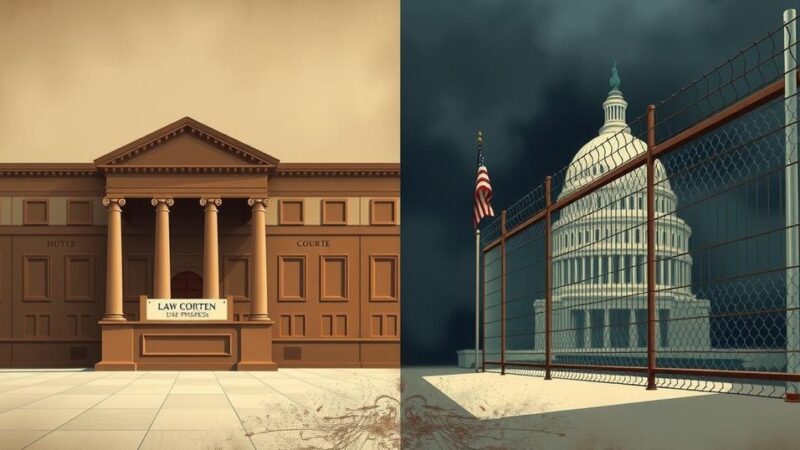Argentina’s Ministry of Deregulation, under President Javier Milei, is aggressively reducing government size and regulations, inspired by libertarian principles. Key initiatives include slashing the number of ministries and public sector jobs while receiving praise from figures like Donald Trump and Elon Musk. Notably, the government is attempting to navigate economic difficulties, including inflation and debt, while promoting reforms to attract investment and reduce poverty.
In Buenos Aires, Argentina’s Ministry of Deregulation is at the forefront of a sweeping initiative to minimize government regulations, inspired by libertarian ideals. Under President Javier Milei, notable reforms have been implemented to reduce the size of the government, which has attracted attention and praise from influential figures such as U.S. President Donald Trump and entrepreneur Elon Musk.
Deregulation Minister Federico Sturzenegger is spearheading this campaign, which has led to a significant reduction in the number of government ministries, from 16 to 8, and a 10% cut in public sector employment. Rigorous “suitability” assessments are underway for current employees, and Milei emphasizes the importance of a leaner government for economic prosperity.
Milei’s radical measures, including proposals to replace the Argentine peso with the U.S. dollar, have been put on hold as he concentrates on achievable reforms during his presidency. These reforms aim to create a more competitive marketplace, address rampant inflation, and reduce poverty levels, which though still high, are beginning to decline from record levels.
The comparison between Argentina’s model and Musk’s Department of Government Efficiency (DOGE) in the U.S. reveals differing political contexts; Milei lacks the strong legislative backing typical of U.S. administrations. In contrast to Milei’s aggressive deregulation, Musk’s DOGE is facing opposition as it looks to trim government jobs and programs aligned with the conservative agenda.
While Argentina’s economy struggles with immense challenges such as currency controls and a heavy debt burden, the government is intent on attracting investments and increasing economic confidence. The country ranks poorly on the Fraser Institute’s regulatory burden index, further motivating the need for reform, as Sturzenegger showcases numerous cumbersome regulations in need of elimination.
To facilitate this process, an online system for public suggestions has been initiated, resulting in over 10,000 ideas in just two months. Sturzenegger aims for thorough deregulation before the expiration of emergency measures designed to expedite these changes, carrying a sense of urgency marked by a countdown in the ministry.
Ultimately, while Milei’s aggressive approach draws both support and criticism, it remains to be seen how these foundational changes will shape Argentina’s future amid ongoing economic turmoil. The success of this initiative will likely depend on the delicate balance of reducing state intervention while ensuring the welfare of the populace is not compromised.
In conclusion, Argentina’s radical deregulatory efforts led by President Javier Milei and Minister Federico Sturzenegger aim to streamline government functions and invigorate the economy. The approach, likened to Elon Musk’s DOGE initiative, seeks to slash inefficiencies while grappling with significant economic challenges. With a focus on public input and urgent reform, Argentina’s path forward will be pivotal in addressing its fiscal crises and enhancing competitive market conditions.
Original Source: www.usnews.com






